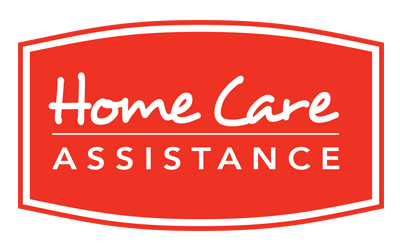The Art of Aging Well
We provide customized hourly and around-the-clock care to older adults so they can live happier, healthier lives at home.
Download by the Home Care Assistance Team
by the Home Care Assistance Team
All is well until something happens, and then what…
You’ve been admitted to the hospital and you and your family find out, from your doctor, that you can no longer live at home alone. Life has put a little hurdle in your way and you don’t know what to do or who to reach out to for help.
Thankfully, there are so many options available to you, even if it doesn’t seem like it now. Whatever the budget and the need, there is something out there for everyone. There are ways to live a happy life with dignity, no matter what the diagnosis is. Let us help you demystify the possibilities.
Social Worker in a hospital / CLSC by Aviva Tenenbaum, social worker at the Mcgill University Health Centre
Hospital social workers play a vital role in assisting with planning an elderly patient’s discharge. As part of the hospital interdisciplinary team, the social worker acts as an advocate, to ensure that the patient’s voice is heard. The social worker also acts as a communication agent between the hospital team and the patient and family. As the social worker assesses the situation and gathers the relevant information, that information will then be communicated to the team in order to develop an appropriate discharge plan.
The social worker plays a vital role in educating the patients and their families about the services that are available in the community. As a result, if the plan is for a patient to return home, the social worker can help to ensure a safe and secure discharge by referring the patient to the appropriate community resources. If the patient is unable to return home and urgently requires relocation to a public facility, the social worker will initiate that process from the hospital, in conjunction with the CLSC. If the patient is interested and capable of relocating to a private facility, the social worker will provide the patient with the appropriate resource information. If the plan is for the patient to return home temporarily, while waiting for relocation, a referral will be made by the hospital team to the CLSC to ensure continuity of services.
Family Support by Janik Fauteux, at Home Care Assistance Montreal
There is nothing more comforting than being around loved ones. Living with members of our family, who help us maintain our autonomy at home, can bring its share of challenges, but can also be rewarding for all.
The care given by family members and the security it offers can have excellent outcomes on health. Despite the benefits of being cared for by a family member, boundaries and limitations should be established from the start, because it is easy for a family caregiver to do too much and become overwhelmed or exhausted quickly.
If things are set up properly from the start, a family caregiver can be a terrific alternative.

Home Care Services by Janik Fauteux, at Home Care Assistance Montreal
Home care companies, whether private or non-profit organisations, allow seniors to maintain their autonomy at home for as long as they want, with the help of nurse’s aids, auxiliary nurses and nurses. These caregivers can help with such things as activities of daily living (companionship, meal preparation, light housekeeping, mediation reminders, bathing, grocery shopping, transportation), cognitive stimulation and much more.
The term “home care” is a broad one and it is important to look for a company that offers the services that you are looking for. Ongoing care management, quality of care and custom designed programs, are differentiators that need to be considered when choosing the right company to work with.
Tax credit for home support services for seniors by Janik Fauteux, at Home Care Assistance Montreal and Revenue Quebec
The Quebec government has put a tax credit in place for seniors. It is designed to help seniors remain in their home instead of moving into an establishment. The tax credit offers a 35% reduction in the cost of home care up to a maximum of approximately $7,000 per year. This credit can help reduce the costs of home care and the strain on public care establishments. Every senior over the age of 70 is eligible for the tax credit, even if they do not have income taxes to pay.
Reverse Mortgages, to stay in your home by Marco Bao, Mortgage broker/ Reverse mortgages, Hypotheca
A reverse mortgage could relieve some financial stress if you feel home care is best. This equity loan will basically lend you up to 55% of the value of your home for as long as you stay in the home. The funds are either paid as a lump sum or as monthly instalments. The bank never takes control, the funds received are tax-free and no payments are required until you sell or move out.
Wealth Management by Claudio Resciniti, Vice President & Portfolio Manager of The Resciniti Group of RBC Dominion Securities (member–Canadian Investor Protection Fund)
Being discharged from the hospital and not being able to continue living alone can be a very challenging and turbulent time for you and your loved ones. In addition to concerns about your physical well-being, you may have a number of financial items needing attention.
Seeking the help of a professional Wealth Advisor may help to alleviate some of the uncertainty you are facing with respect to your financial well-being. A wealth manager works with you, and those close to you, to develop and implement a plan to help secure your financial future. They manage your investments, including your retirement funds to ensure you receive the income you need. In addition, they can work with other professionals, including Private Bankers, Financial Planners, Notaries and Accountants to ensure all your financial matters are looked after. From paying your phone bill, to tax planning, to ensuring your Will is up to date, their goal is to provide you with a holistic plan that makes financial matters easier for you and the people you care about.
Looking for a retirement residence by Kate Coulter and France Caron, owners of Gerontologis
When your loved one cannot remain at home because he/she has been deemed inept, Lodging Consultants for seniors can help you find the right private residence, no matter what level of care needed.
They will accompany you during the numerous steps involved: assessment of needs; preparing a client profile for the agreed upon residences; coordinating the appointments to residences; accompanying you during residence visits; presence at the signature of the lease; and follow up for up to three months. This is a free service for the family.
Selling your home by Martin Rouleau, Real estate broker at Engel & Volkers Westmount
Your doctor has just informed you that you may not return to your house alone and the idea of home care isn’t an option for you. You still have the option to live in a retirement home. Selling your house is the next step!
There are many Real Estate brokers who can help. The challenging part is to find the one who knows your area best and who will guide you in a professional manner through the evaluation of your property and the steps of the sale.
A relationship of trust that is based on transparency, is essential for a hassle-free transaction. You should also look for an advisor who has built strong relationships with collaborating brokers over the years.
Note: This article is for informative purposes only. Always check with a medical professional.